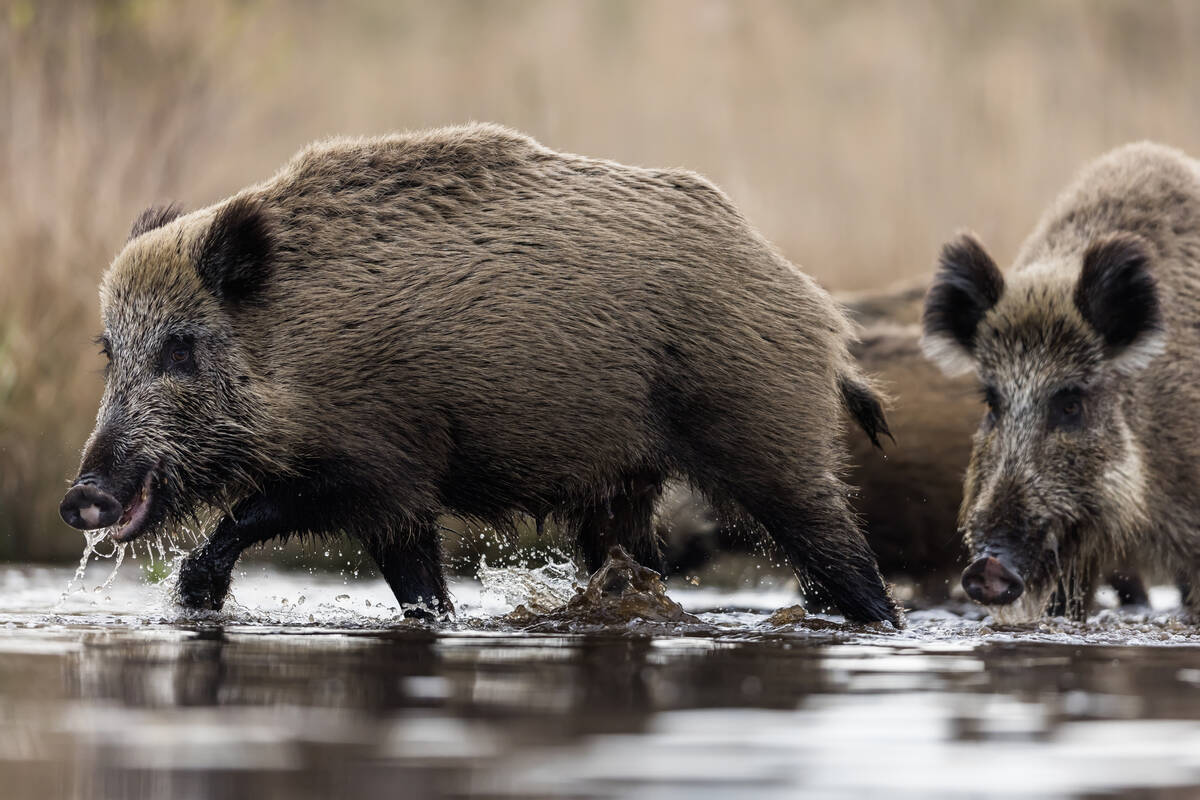It wasn’t many years ago that the notion of managing human resources on a farm was a foreign concept. Human resource management was something other businesses did.
But to quote a Bob Dylan song, “the times they are a-changin.”
Management on a farm can be categorized into four main areas: marketing, operations, finance and human resources.
Businesses can benefit from working to achieve and sustain a relative balance, or harmony, among management functions.
This requires that owners and managers take a more holistic approach. They must spend time analyzing business performance to understand how the decisions they make affect the various areas of management. How, for example, does an operations decision affect finance and human resources.
Read Also

Manitoba bans wild boar possession
Manitoba has tightened the regulatory status of Eurasian wild boar in an effort to help fight back against invasive wild pigs.
Farmers have traditionally treated management function independently, with a primary focus on operations and marketing.
Many farmers recognize, though, that their management activities must change to ensure long-term sustainability.
Increasing complexity is a key driver of this need for management changes.
The increased complexity typically comes from farms that are getting bigger, working through an intergenerational transition or diversifying into new business units.
More attention must be directed at finance and human resource management.
Money can be a limiting resource, but there is really only one absolute constraining resource, and that’s a farmer’s time. The saying “time is money” applies.
I’ve been consulting with farmers and farm families for decades and am detecting a shift. Producers are starting to accept that managing human resources is important, not just for arm’s length employees but for every farm worker, including family members.
However, the most important human resource to manage is clearly a farmer’s own human resource.
Steven Covey, author of the Seven Habits of Highly Effective People, says that “it’s incredibly easy to get caught up in an activity trip, in the busyness of life, to work harder at climbing the ladder of success only to find it’s leaning against the wrong wall. Is it possible to be busy, very busy, without being effective?”
It makes no sense to continue to do the same things — the busy-ness things — and expect that changes will happen.
The simple questions that follow are: what can farmers do to effect the change that they determine is needed, and can they make better use of their own human resource.
The answer is more involved.
First, farmers have to know what they do on a day-to-day and month-to-month basis.
However, most of them don’t really know what they do.
This isn’t a criticism. Until recently, there wasn’t a need to know, in any detail, what individual farmers did with their time.
A relatively easy exercise is to write down a list of what gets done and what gets managed on the farm. Allocate each of the activities to one of the four management areas: marketing, operations, finance and human resources.
There’s a saying that “you can’t manage what you can’t measure.” How do farmers begin to know how to make adjustments to their management practices if they have not measured how and where they’re spending their time?
Farmers should then determine which of the activities that take up their time are they willing to let go.
It will require a re-focus.
There’s a better chance of getting the desired outcomes if the adjustment is purposeful. In other words, determine what it is you are working to achieve.
Next, be a bit selfish with your time. This is about working smarter rather than harder.
I’ve had farmers tell me in the past few months that they are going to start to be much more selective about the events they attend. Do you have the time to attend the event? Where might you better spend that time?














